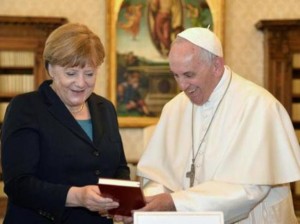 National Catholic Reporter:
National Catholic Reporter:
VATICAN CITY The participants of a first-of-its-kind Vatican conference have bluntly rejected the Catholic church’s long-held teachings on just war theory, saying they have too often been used to justify violent conflicts and the global church must reconsider Jesus’ teachings on nonviolence.
Members of a three-day event co-hosted by the Pontifical Council for Justice and Peace and the international Catholic peace organization Pax Christi have also strongly called on Pope Francis to consider writing an encyclical letter, or some other “major teaching document,” reorienting the church’s teachings on violence.
“There is no ‘just war,'” the some 80 participants of the conference state in an appeal they released Thursday morning.
“Too often the ‘just war theory’ has been used to endorse rather than prevent or limit war,” they continue. “Suggesting that a ‘just war’ is possible also undermines the moral imperative to develop tools and capacities for nonviolent transformation of conflict.”
….Just war theory is a tradition that uses a series of criteria to evaluate whether use of violence can be considered morally justifiable. First referred to by fourth-century bishop St. Augustine of Hippo, it was later articulated in depth by 13th-century theologian St. Thomas Aquinas and is today outlined by four conditions in the formal Catechism of the Catholic Church.
The Rome conference, held Monday through Wednesday, brought experts engaged in global nonviolent struggles to reconsider the theory for the first time under the aegis of the Vatican.
It comes after a number of theologians have criticized continued use of the theory in modern times, saying that both the powerful capabilities of modern weapons and evidence of the effectiveness of nonviolent campaigns make it outdated.
Yes, of course, non-violent campaigns can (mercifully) work, but they work most effectively within a society – and usually a society where the ground rules of dispute resolution are already broadly agreed.
Thus in the West, non-violent protest can be very effective. In, say, the China of Tiananmen Square that was not so true.
Similarly between states, non-violent campaigns are only effective if those states have already agreed that the issues over which they are disagreeing are not the sort of issues over which nations go to war. Many states disagree with Japanese whaling, but they are not going to fight Japan over it. Instead they apply moral pressure.
But there are cases in which there is no agreed ‘non-violent’ mechanism to bring about (or halt) the change that one state (or para-state) wants to see. Non-violence, in the form of appeasement, was tried against the Third Reich. It didn’t work out. Neither the Northern nor the Southern States of the antebellum US wanted to go to war, but, in the end, war was all that was left.
Scroll forward a century and a half. Will ISIS really be stopped by a campaign of non-violence?
National Catholic Reporter:
At a press event launching the conference’s final appeal document — given the title “An Appeal to the Catholic Church to Re-Commit to the Centrality of Gospel Nonviolence” — several of the event’s participants said the church should simply no longer teach the just war theory.
“I came a long distance for this conference, with a very clear mind that violence is outlived,” said Archbishop John Baptist Odama of Gulu, Uganda. “It is out of date for our world of today.”
No, Archbishop, it is not ‘outlived’. And for a man from Uganda, a land ravaged by the horrors of the Lord’s Resistance Army, to say that is disgusting.
And do the Yezidi believe that violence is outlived?
Do Odama’s fellow Christians, martyred in Nigeria, Syria, Iraq and too many other places besides, believe that violence is outlived?
“We have to sound this with a strong voice,” said the archbishop. “Any war is a destruction. There is no justice in destruction. … It is outdated.”
Did the liberated peoples of Europe in 1945 feel that way?
Or read Sherman, that most eloquent, most reluctant warrior of genius:
“I confess, without shame, that I am sick and tired of fighting — its glory is all moonshine; even success the most brilliant is over dead and mangled bodies, with the anguish and lamentations of distant families, appealing to me for sons, husbands, and fathers … it is only those who have never heard a shot, never heard the shriek and groans of the wounded and lacerated … that cry aloud for more blood, more vengeance, more desolation.”
But:
“We can make war so terrible and make [the South] so sick of war that generations pass away before they again appeal to it.”
Back to the conference:
Marie Dennis, an American who serves as a co-president of Pax Christi International, said she and the conference group “believe that it is time for the church to speak another word into the global reality.”
“When we look at the reality of war, when we look at the teachings of Jesus, we’re asking what is the responsibility of the church,” she said. “And it is, we believe, a responsibility to promote nonviolence.”
Dennis also said she understands that people may raise concerns in rejecting the just war theory over needing to stop unjust aggressors. Her group, she said, agrees that violent aggressors have to be stopped.
“The question is how,” said Dennis. “Our belief would be that as long as we keep saying we can do it with military force, we will not invest the creative energy, the deep thinking, the financial and human resources in creating or identifying the alternatives that actually could make a difference.”
“As long as we say that dropping bombs will solve the problem we won’t find other solutions and I think that’s feeling more and more clear to us,” he said….
Even if we accept unchallenged her assumptions about what Jesus actually said (ancient hearsay, after all), there is a certain presumption (a presumption rooted in a sense of moral superiority) running through Dennis’ comments, the presumption that nations rush into war. That’s rarely true. Man is a violent animal, but he knows what war means too. If a country can get what it wants without violence, for the most part, it will. War is generally not the first resort.
And as for combating ISIS with deep thinking….
There is something rather sickening about the spectacle that this conference represents. The priests, nuns and theologians will preen, and lay their virtue out for all to see, but they do so safe in the knowledge that most people disagree with what they have to say.
To preach non-violence while safe behind the defenses that others will man is the behavior of a hypocrite and, worse than that, a hypocrite who freeloads of the sacrifices of those who he or she condemns.
And finally:
Ken Butigan, a lecturer at DePaul University in Chicago and executive director of the non-profit group Pace e Bene, said: “We have gotten a green light for months that this is something that Pope Francis is excited about moving forward on.”
“We are determined to support that momentum at this historical moment,” he said. “We know Pope Francis has a vision and we’re here to support that vision.”
The same Pope Francis, who just last June said this:
“The great powers had photographs of the railway routes that the trains took to the concentration camps, like Auschwitz, to kill the Jews, and also the Christians, and also the Roma, also the homosexuals,” Francis said, citing the death camp in Poland. “Tell me, why didn’t they bomb” those railroad routes?
Well, no one ever accused Francis of intellectual coherence.


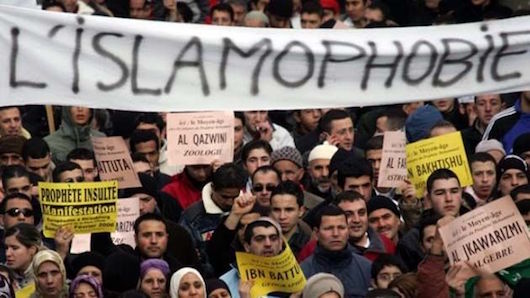
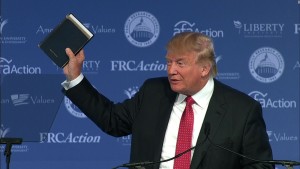 Writing in the Washington Post, E.J. Dionne
Writing in the Washington Post, E.J. Dionne 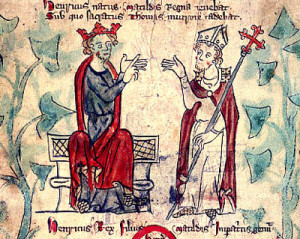 Accompanied by somewhat morbid spectacle, a fragment of the elbow (!) of Thomas Becket (1118-70), an Archbishop of Canterbury who came to a rather sticky end, has been briefly returned to England.
Accompanied by somewhat morbid spectacle, a fragment of the elbow (!) of Thomas Becket (1118-70), an Archbishop of Canterbury who came to a rather sticky end, has been briefly returned to England.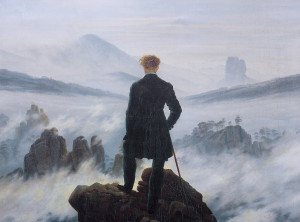 In the course of reading around
In the course of reading around 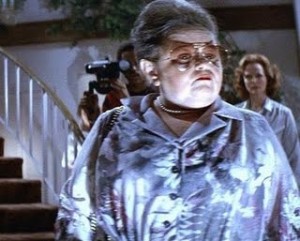 The Guardian:
The Guardian:
